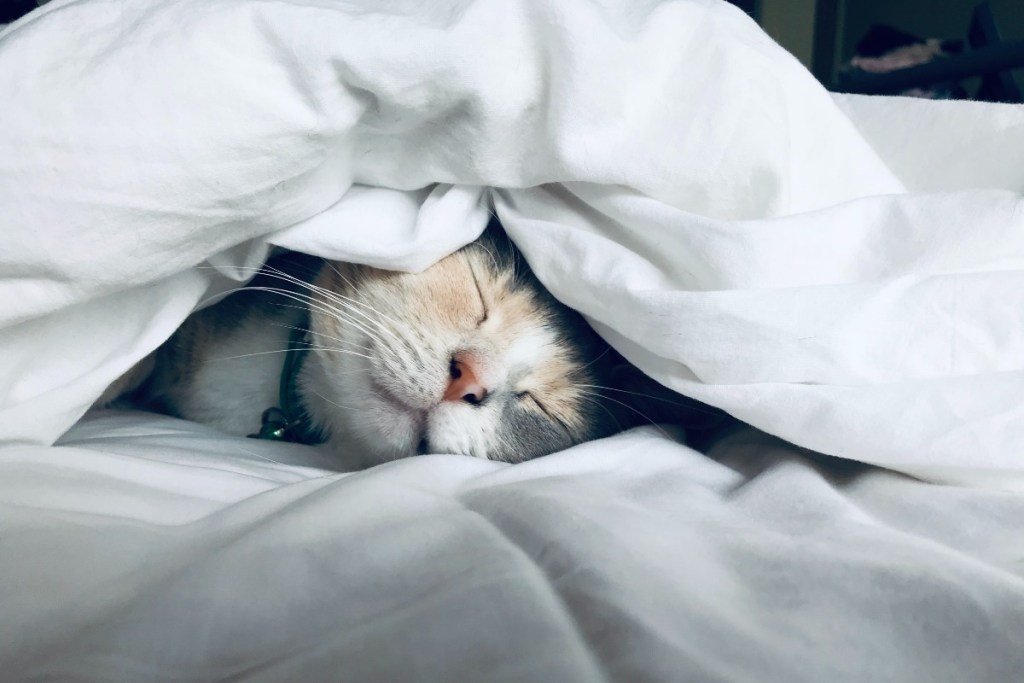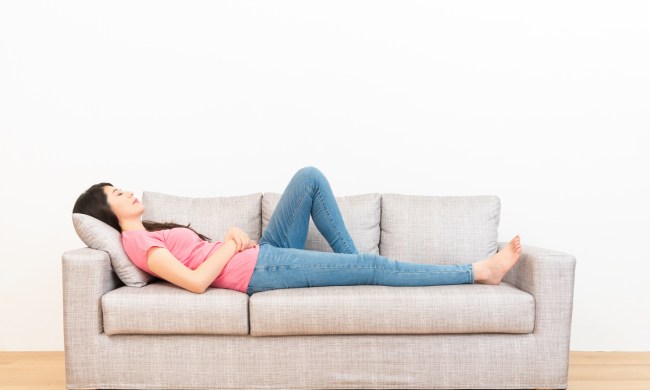Do you turn your phone off before bed or at least put it on a charger? Probably. However, we don’t always granourselves the same luxury. Instead, we scroll through our phones and look at negative headlines. Sometimes, we may mentally go through our to-do list or beat ourselves up over a mistake we made.
Research has shown that about 33 percent of adults struggle with chronic insomnia. What’s more, women are more prone to disrupted sleep —females are 40 percent more likely than men to experience insomnia.
If you’re struggling to catch quality shut-eye, consider speaking with a doctor or therapist. However, you might benefit from thinking back to when you were a child: Did you have a bedtime routine? Perhaps one that included reading and a bath? Re-implementing those strategies may help you. Try these tips for creating an adult version of a bedtime routine.

Three ideas to help you relax before bed
Try adding one or all of these evidence-based strategies as you’re creating your relaxing bedtime routine.
Hop in the shower or bath
If showering is typically part of your morning itinerary, but you’re struggling to sleep, you may want to consider switching things up. A recent report found that people who took a bath in 104 to 109-degree water an hour and a half before bedtime drifted off to dreamland 10 minutes sooner than those who did not. As a bonus, night showers give you one less thing to do in the morning, allowing you to enjoy a few extra minutes of restful slumber.
Read a book
Curling up with a good book before bedtime (or any time, really) can help lower stress, and it’s good for your physical health, too. Research shows reading can reduce blood pressure and heart rate. Cracking open a book might be a valuable part of your bedtime routine if you find that stress, particularly about your health, keeps you up at night. Just make sure it’s something that relaxes you (in other words, skip the news, and maybe save that murder mystery for your break at work). And one more thing. When we say book, we mean one made of paper. Reading on a tablet or phone will defeat the purpose.
Try yoga or meditation
Experts say that vigorous exercise an hour before bedtime can make it harder to fall asleep and even affect sleep quality. However, gentle movement, like yoga, may benefit you. In one survey, more than half of respondents said yoga helped them get a better night’s rest, and 85 percent said chanting “ohm” reduced stress. If you’d rather stay stationary, try meditating instead. The National Sleep Foundation points to a bevy of research that says meditation works wonders for people having trouble getting rest.

Two habits to nix from your routine
If these two items are part of your current nightly routine, you may want to reevaluate. Research shows they can exacerbate sleep disruption.
Don’t double down on screen time
Mobile devices can help us keep in touch with loved ones or entertain us during a mass-transit commute to work. However, they may be making bedtime harder. Phones and tablets emit blue light, and that can disrupt the body’s natural production of the sleep-inducing hormone melatonin. This disruption can cause us to fall asleep later, tossing and turning as we try to power down for the night. The National Sleep Foundation suggests keeping your bedroom free of screens. If you can’t do that, consider putting your devices out of your arm’s reach.
Don’t sleep with a pet
If you love using your pup as a foot warmer on a cold night, this tip will come as bad news for both you and Rover. Of course, if your pet isn’t interrupting your sleep, you can feel free to disregard this advice. However, if your 8-pound terrier somehow manages to take up half the mattress (or snores), consider getting Fido their own bed. One 2020 study found that co-sleeping with dogs increases women’s nighttime movements, which may disrupt sleep. Cats are generally nocturnal so while they may not wake you up with their snoring, their after-dark antics can still make for a sleepless night. You may need to lock them out of the bedroom to keep your sleep space interruption-free.
Maybe you’ve outgrown bedtime stories and being tucked in, but adult bedtime routines can be as effective as the ones we followed when we were kids. Cutting screen time in favor of a book or meditation can help our eyes and minds get in the mood for bedtime. Night showers can also send a signal to the body that it’s time to sleep. Though pets can be comforting, consider giving yours a separate bed if the animal keeps you up at night. Once you find a relaxing bedtime routine that works for you, try following it each night. The consistency could help you get better sleep and awake more rested and ready to take on the world.
BlissMark provides information regarding health, wellness, and beauty. The information within this article is not intended to be medical advice. Before starting any diet or exercise routine, consult your physician. If you don’t have a primary care physician, the United States Health & Human Services department has a free online tool that can help you locate a clinic in your area. We are not medical professionals, have not verified or vetted any programs, and in no way intend our content to be anything more than informative and inspiring.



